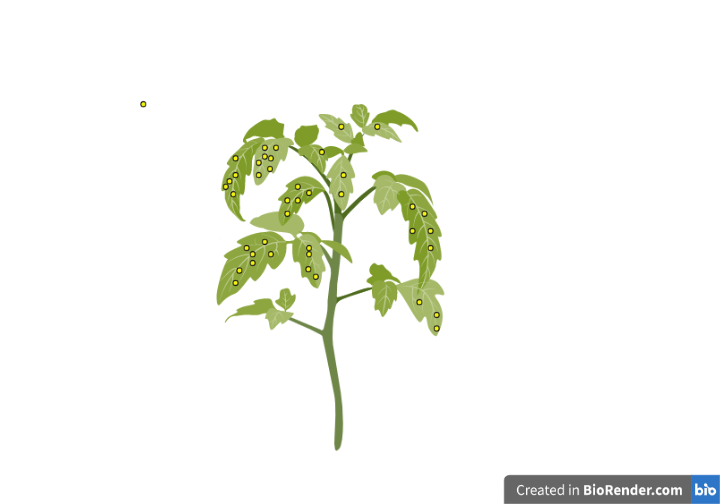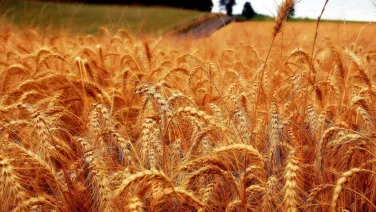Rathjen Group - Plant immunity
Rathjen group focuses on all aspects of plant immunity, characterising the fascinating interplay between host and pathogen.
About

We have a long standing interest in plant immunity, and are studying how it integrates with plant physiology and developing strategies to control disease. Our major diseases of interest are wheat stripe rust caused by a fungal pathogen and bacterial speck disease. We have made seminal contributions in a number of areas including pathogen recognition by plants, identification of signal transduction pathways and how microbes suppress them, and genomics and transcriptomics of rust fungi.
Honours and PhD projects are available in the following areas:
Sweet immunity - how immunity interfaces with photosynthesis
Green plants harness sunlight to convert CO2 into sugars. Naturally, this attracts microbes who seek to feed on this abundant nutrient source. Plants are a mixture of source tissues that fix carbon and sink tissues that utilise it, a relationship that is exploited by pathogens. Biotrophic pathogens such as fungal rusts act as a new sink that maintains photosynthetic production while avoiding detection by the plant's immune system. Necrotrophic pathogens trigger immunity, leading to inappropriate conversion of source tissues to sink which triggers cell death. The major focus of this work is to understand how plant immune receptors trigger the major changes in primary metabolism that underlie these events. This investigation represents the cutting edge of plant immunity research and utilises a range of techniques including biochemistry, molecular biology, metabolomics and comparative transcriptomics.
Innovating new disease control strategies
Fungal diseases such as rusts cause huge economic and food losses. We constantly need new ways to combat them and to reduce the impact of toxic fungicides on the environment.
Fungi that attack fungi
Rust fungi produce huge numbers of spores wich store large amounts of protein, carbohydrate, fats and sugar alcohols. This makess them targets for opportunistic members of the microbiome including fungal hyperparasites. We have isolated a number of potential fungal hyperpasites of rust spores and are asking questions about their specificity and aggressiveness. As we learn more about these fungi we will test if they can be used to control rust diseases under field conditions. We are performing whole genome sequencing of selected isolates in conjunction with transcriptomics to identify key pathogenicity genes and small metabolite clusters.

Synthetic biology for new pathogen receptors
Stem, stripe and wheat rust diseases of wheat wreak havoc on grain production causing famine and huge economic losses. The best means of control is via deployment of plant resistance genes, but these are rapidly overcome by the rapidly evolving pathogens. This project is lead by DECRA fellow Dr Xiaoxiao Zhang and uses synthetic biology methods to generate new resistance genes in vitro for rapid deployment in crops via genome engineering.
Genomics of wheat rusts
Although wheat rusts evolve rapidly, their sources of genetic variability, pathways to evolution of virulence, and relationships between lineages are poorly understood. Here we interact with local and international collaborators to better understand these problems in a global context. Projects in this area are offered in collaboration with the Schwessinger laboratory.
Click here for an overview of what we do
Click here to learn more about our awards and achievements
Click here for a list of publications
Awards
- Research Scholarship, 2014
- CSIRO OCE Postdoctoral Scheme, 2011
- ARC Discovery Project, 2010
- ARC Future Fellowship, 2009
Publications
Selected publications
Boutrot F, Segonzac C, Chang K, Qiao H, Ecker J, Zipfel C, Rathjen J: Direct transcriptional control of the Arabidopsis immune receptor FLS2 by the ethylene-dependent transcription factors EIN3 and EIL1. Proceedings of the National Academy of Sciences of the United States of America 2010, 107:14502-14507.
Dodds P, Rathjen J: Plant immunity: towards an integrated view of plant-pathogen interactions. Nature Reviews Genetics 2010, 11:539-548.
GIMENEZ-IBANEZ S, HANN D, NTOUKAKIS V, PETUTSCHNIG E, LIPKA V, RATHJEN J: AvrPtoB Targets the LysM Receptor Kinase CERK1 to Promote Bacterial Virulence on Plants. CURRENT BIOLOGY 2009, 19:423-429.
Hann D, Gimenez-Ibanez S, Rathjen J: Bacterial virulence effectors and their activities. Current Opinion in Plant Biology 2010, 13:388-393.
Heese A, Hann DR, Gimenez-Ibanez S, Jones AME, He K, Li J, Schroeder JI, Peck SC, Rathjen JP: The receptor-like kinase SERK3/BAK1 is a central regulator of innate immunity in plants. Proceedings of the National Academy of Sciences of the United States of America 2007, 104:12217-12222.
Mucyn TS, Clemente A, Andriotis VME, Balmuth AL, Oldroyd GED, Staskawicz BJ, Rathjen JP: The tomato NBARC-LRR protein Prf interacts with Pto kinase in vivo to regulate specific plant immunity. Plant Cell 2006, 18:2792-2806.
NTOUKAKIS V, MUCYN T, GIMENEZ-LBANEZ S, CHAPMAN H, GUTIERREZ J, BALMUTH A, JONES A, RATHJEN J: Host Inhibition of a Bacterial Virulence Effector Triggers Immunity to Infection. SCIENCE 2009, 324:784-787.
RATHJEN J, CHANG J, STASKAWICZ B, MICHELMORE R: Constitutively active Pto induces a Prf-dependent hypersensitive response in the absence of avrPto. EMBO JOURNAL 1999, 18:3232-3240.
SCOFIELD S, TOBIAS C, RATHJEN J, CHANG J, LAVELLE D, MICHELMORE R, STASKAWICZ B: Molecular basis of gene-for-gene specificity in bacterial speck disease of tomato. SCIENCE 1996, 274:2063-2065.
WU A, ANDRIOTIS V, DURRANT M, RATHJEN J: A patch of surface-exposed residues mediates negative regulation of immune signaling by tomato Pto kinase. PLANT CELL 2004, 16:2809-2821.






